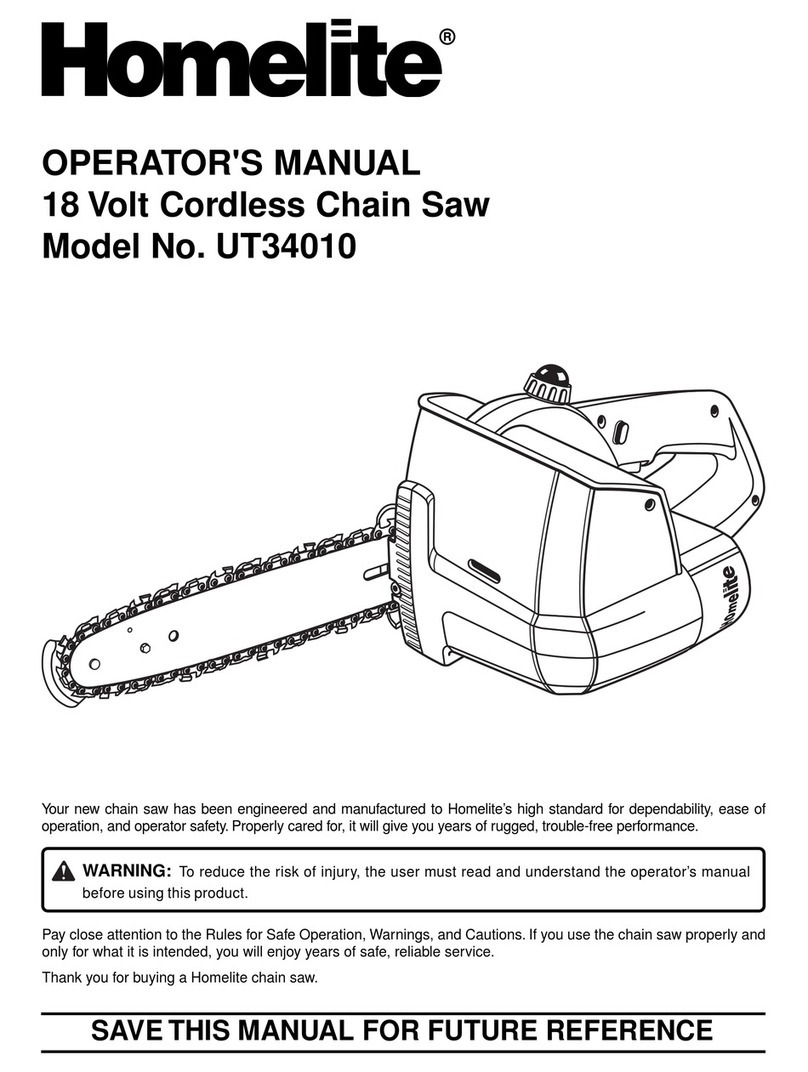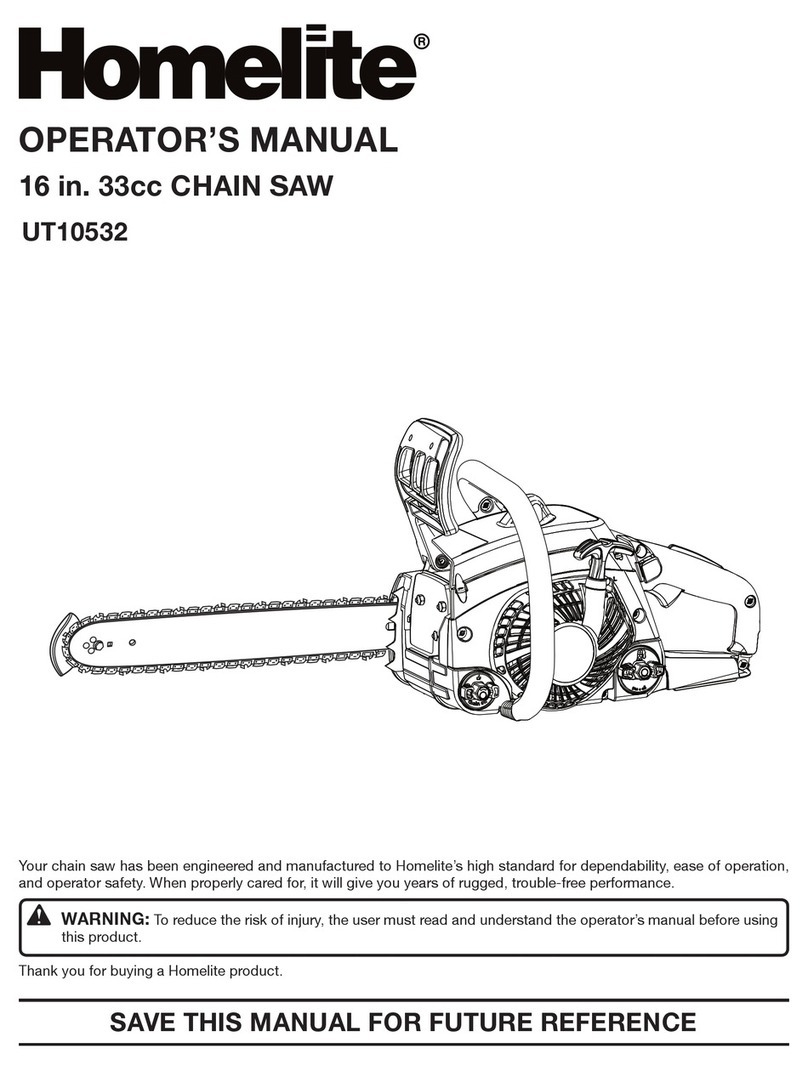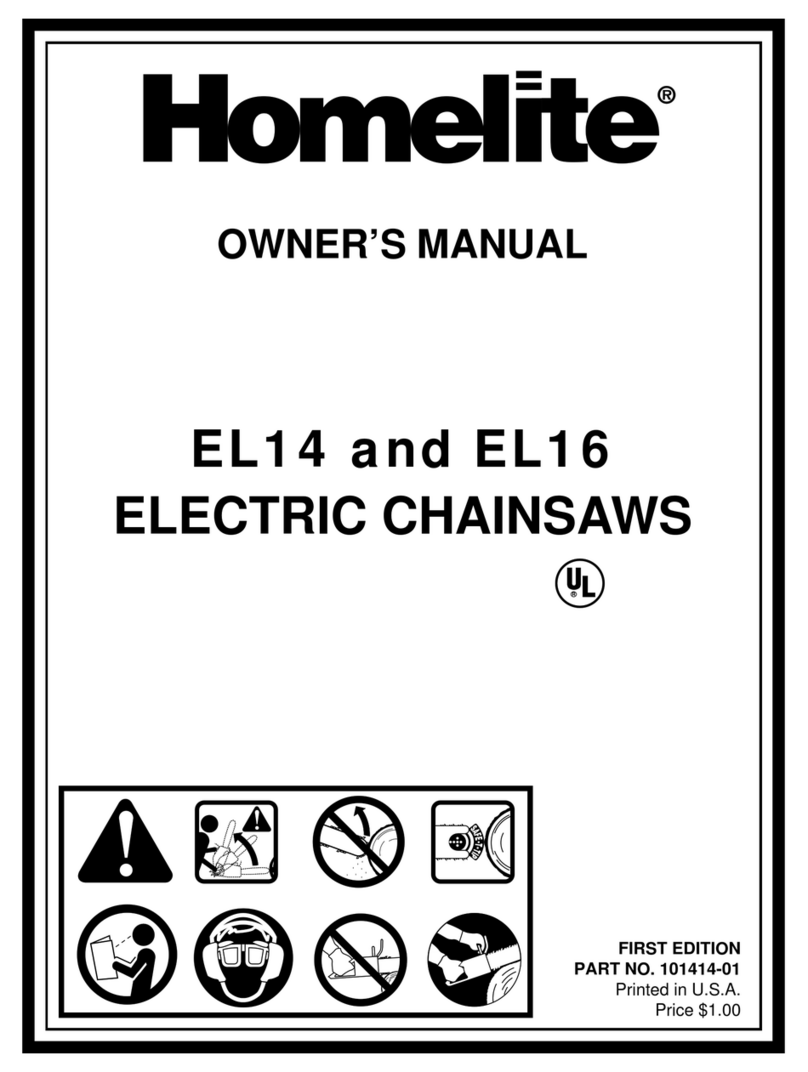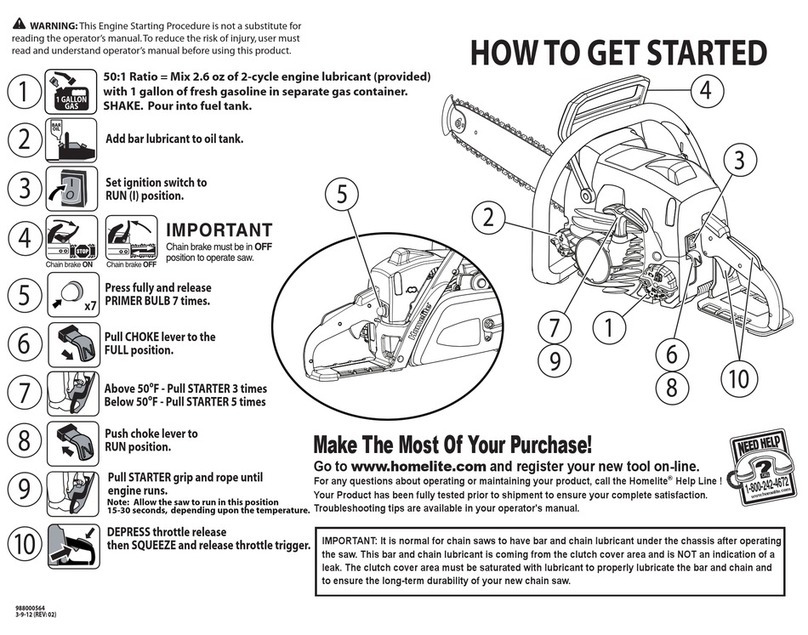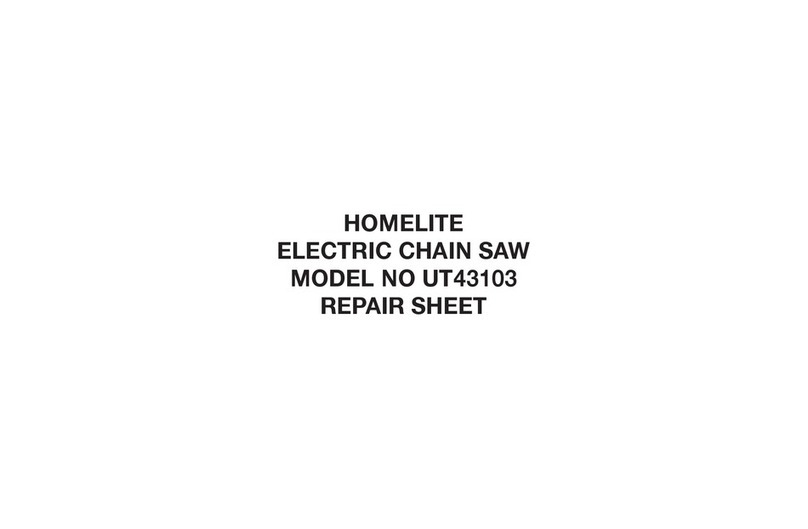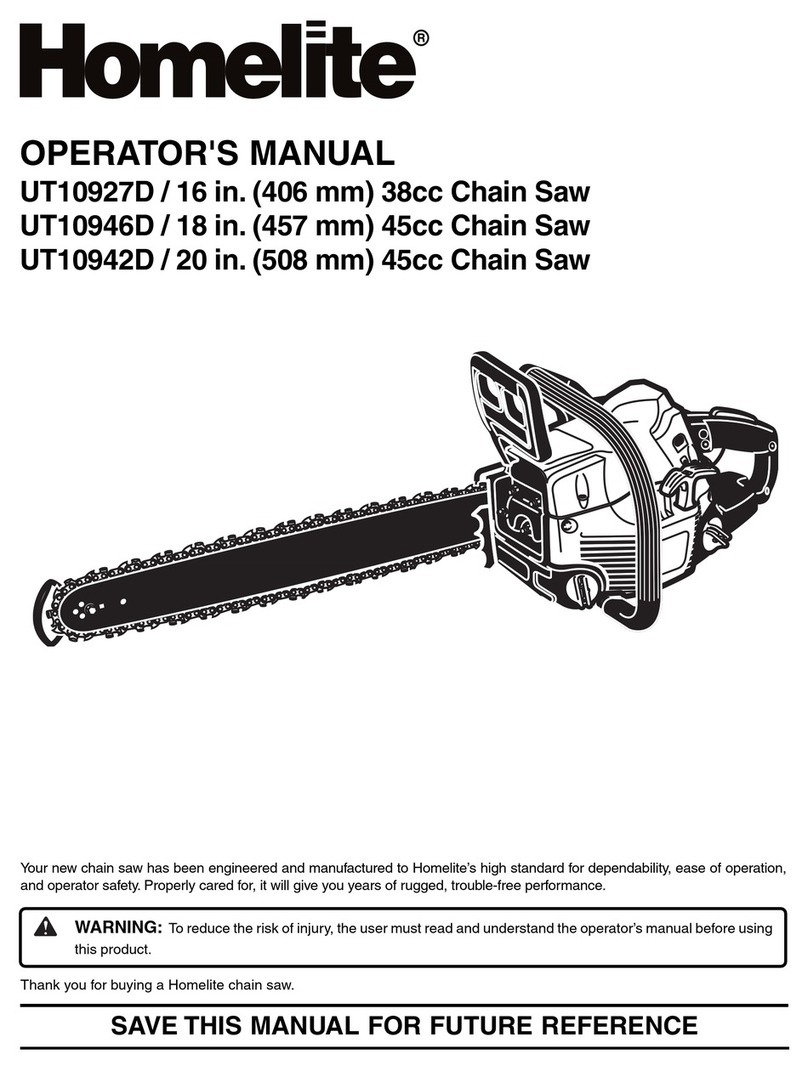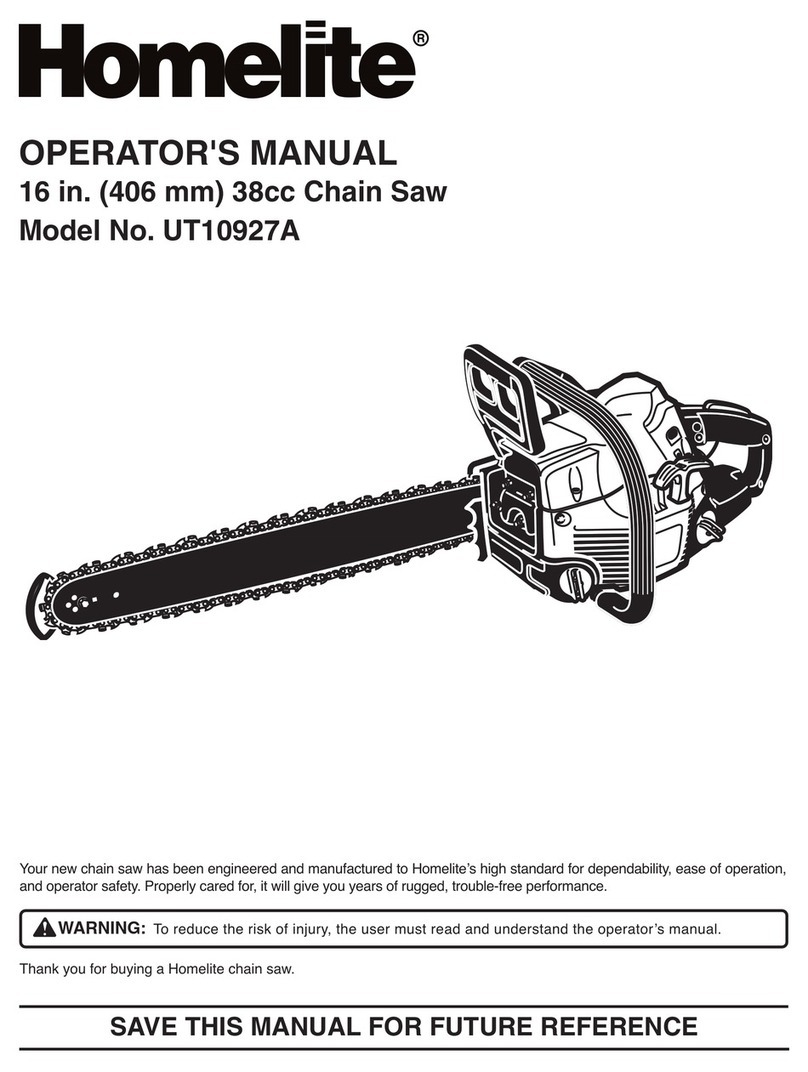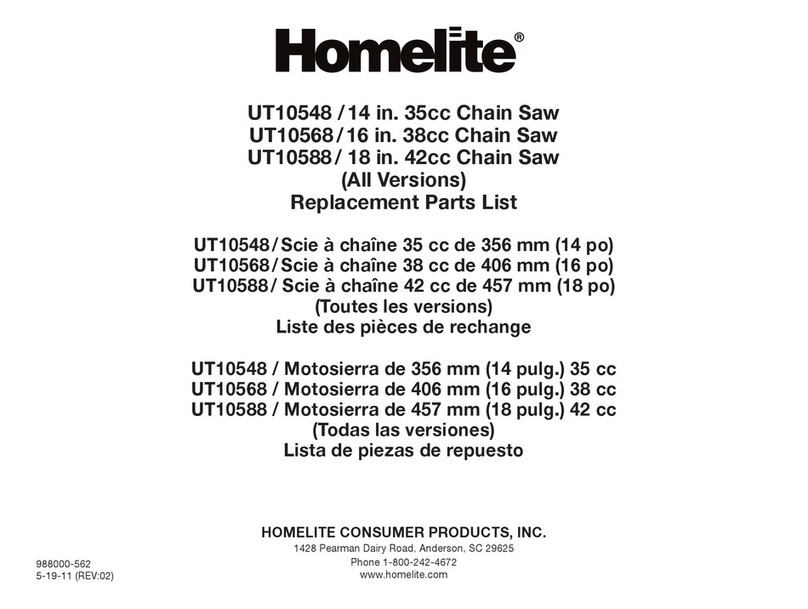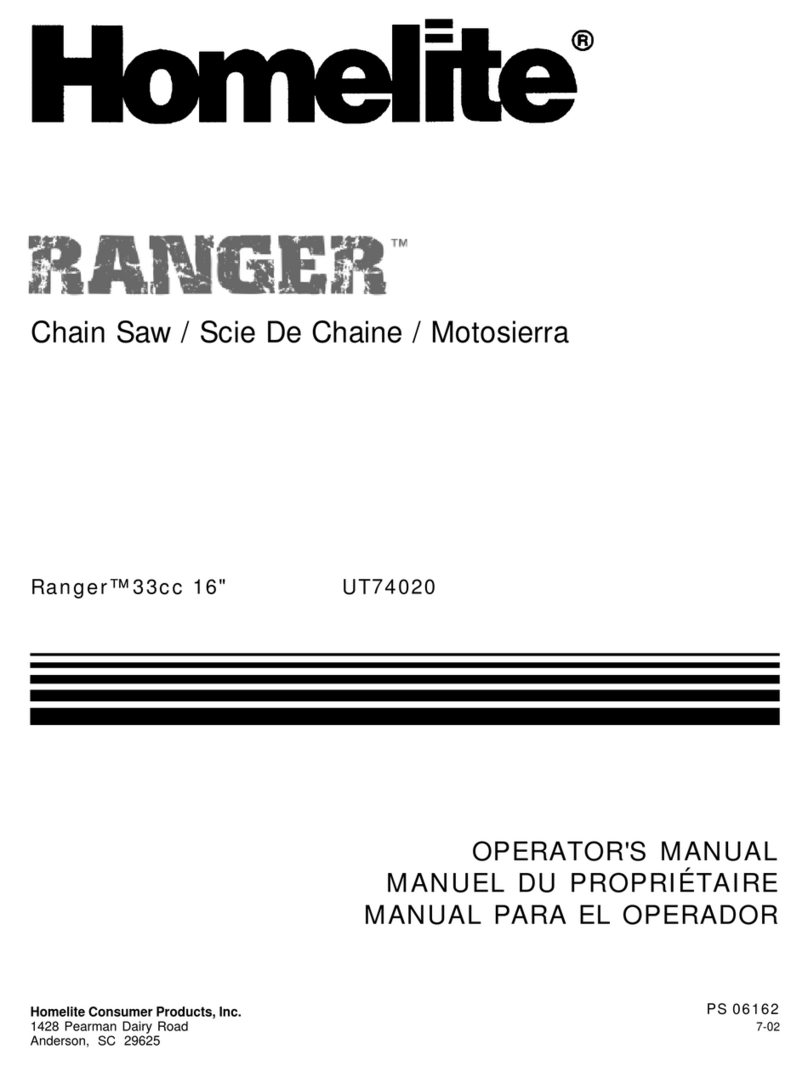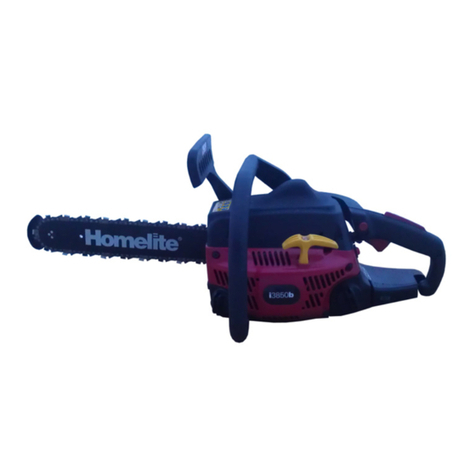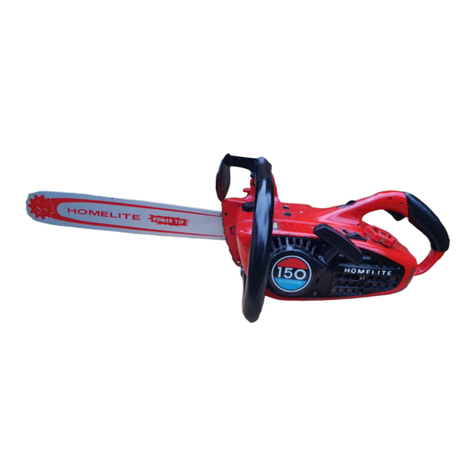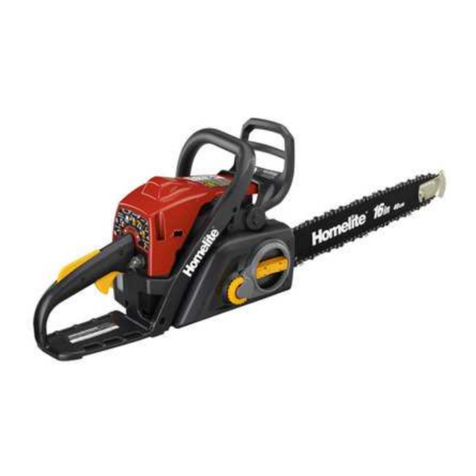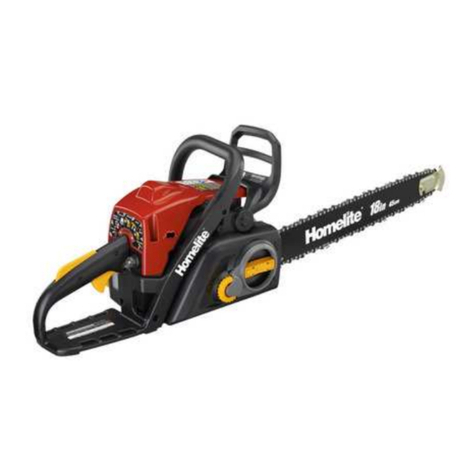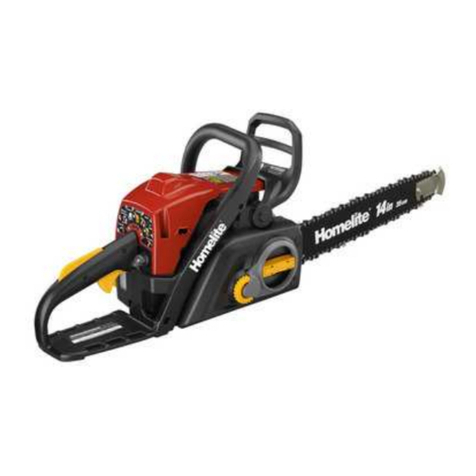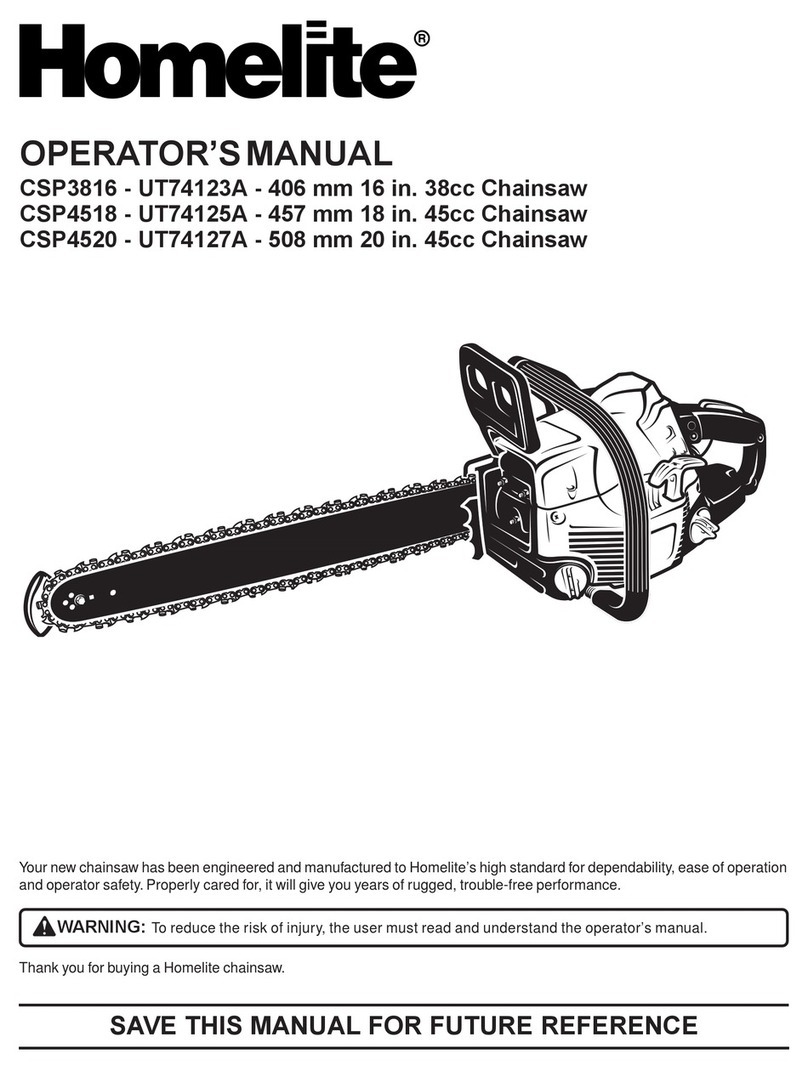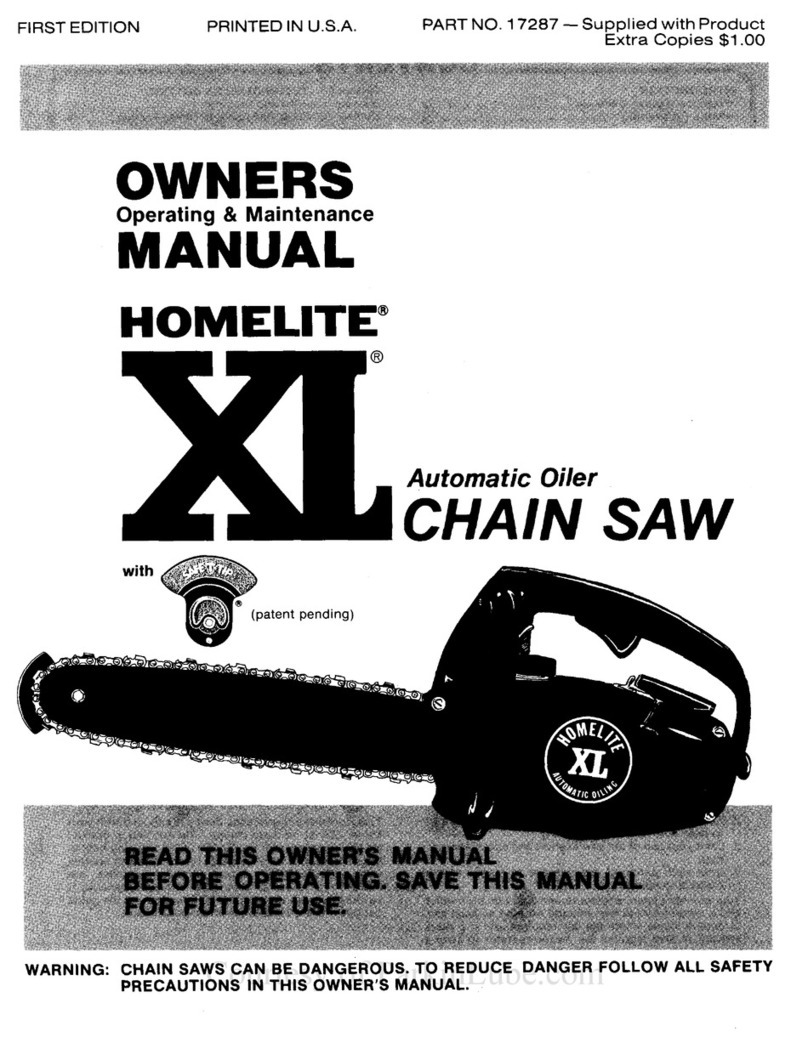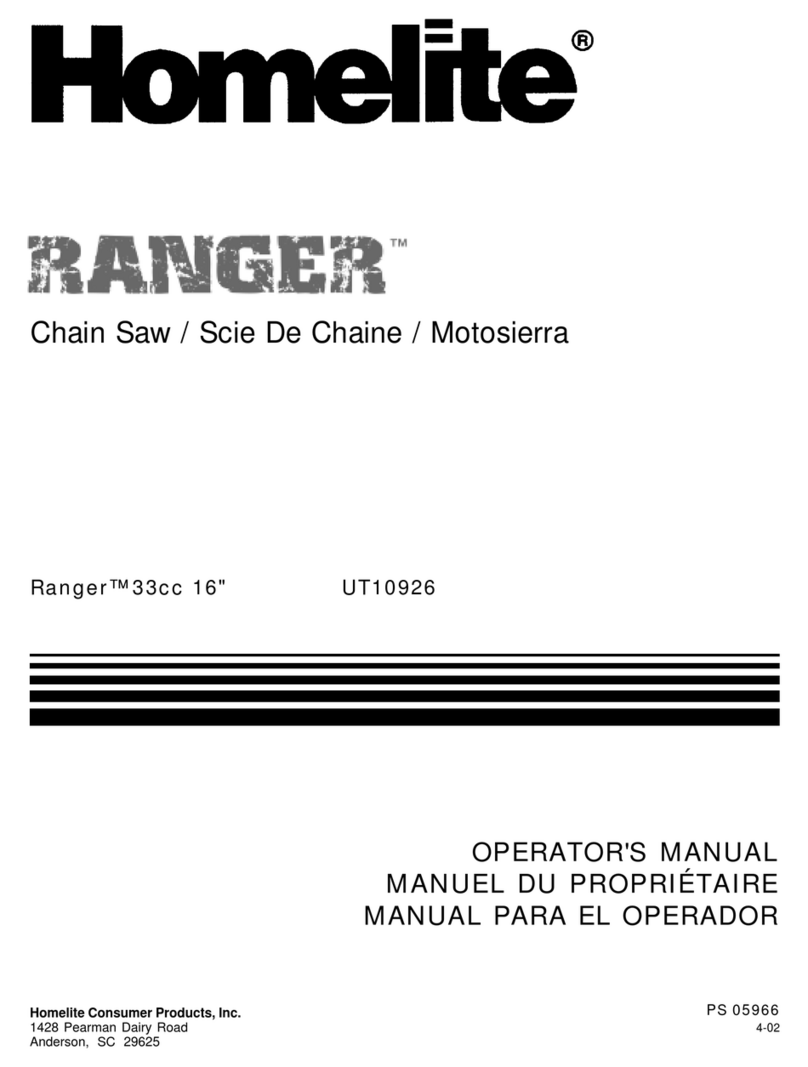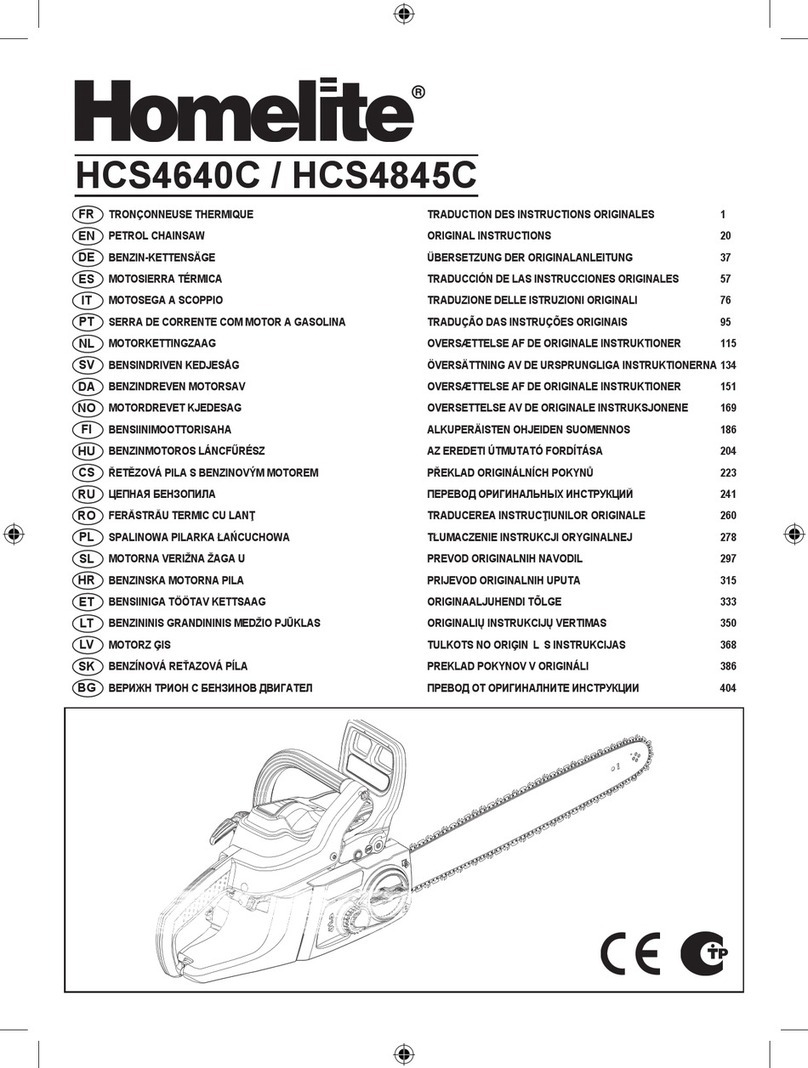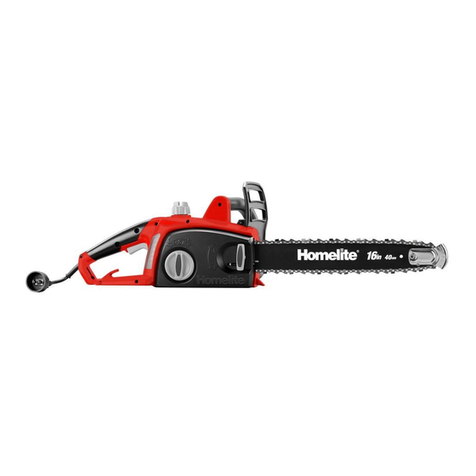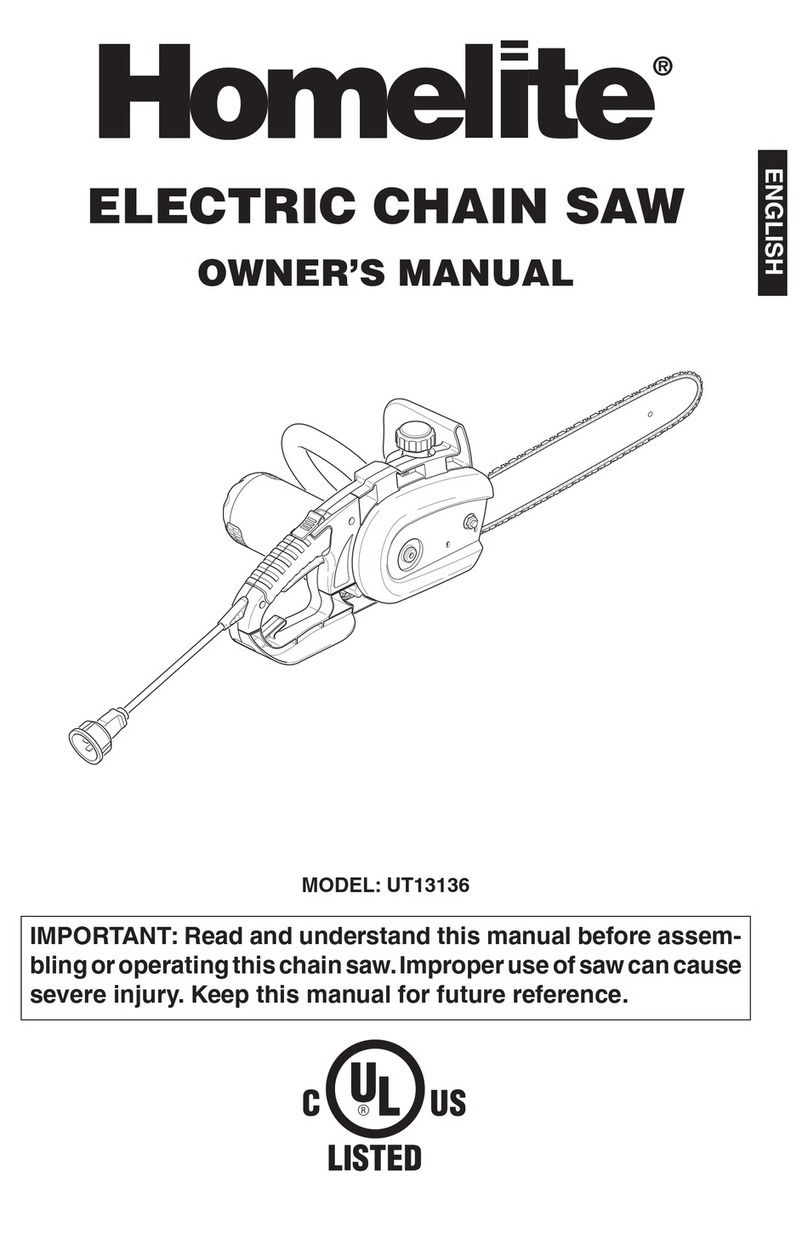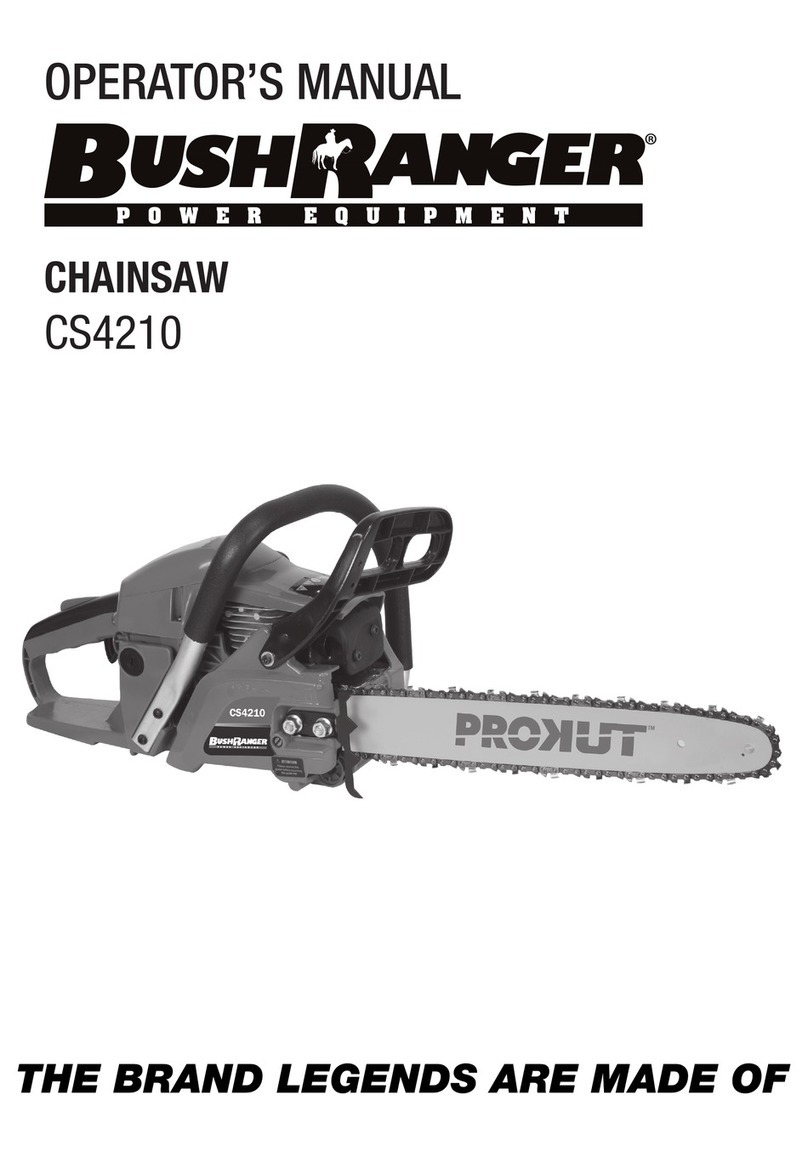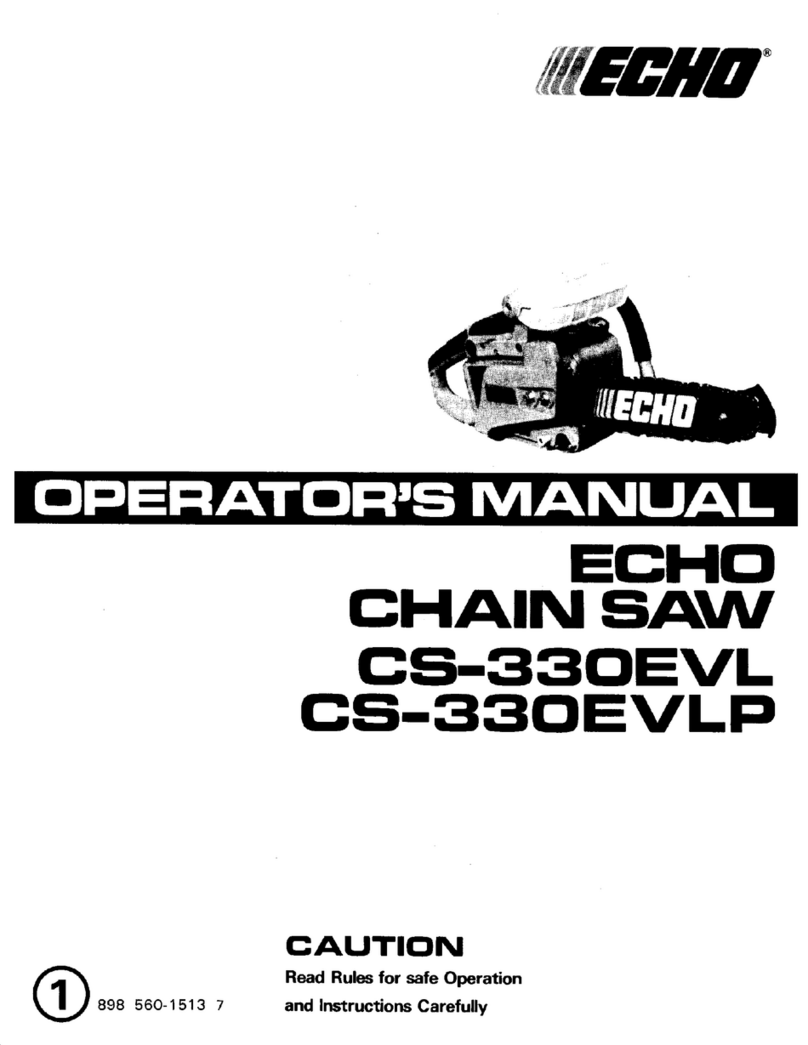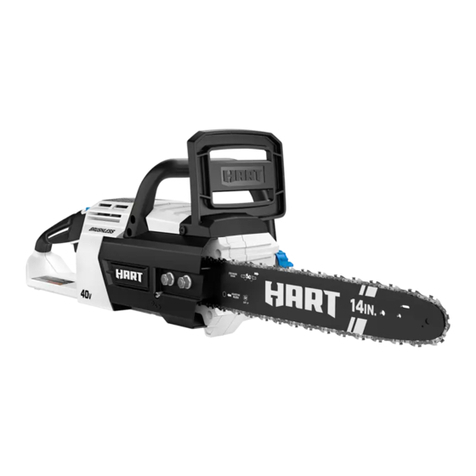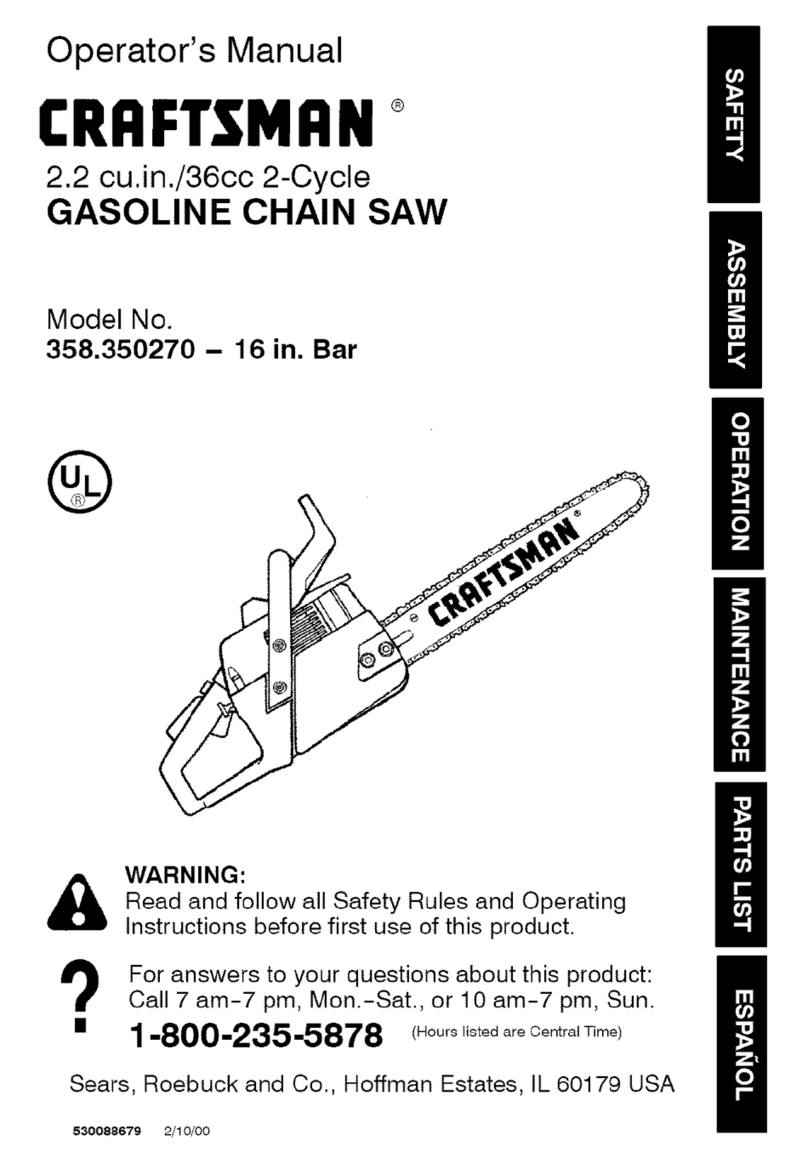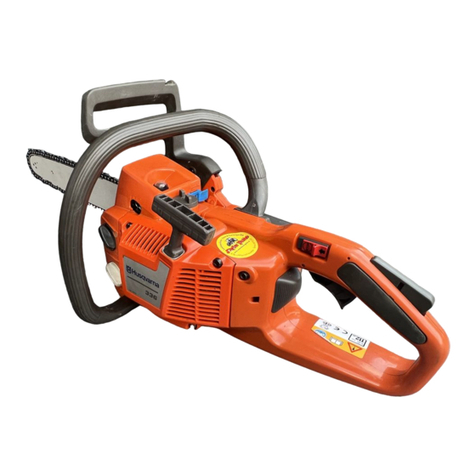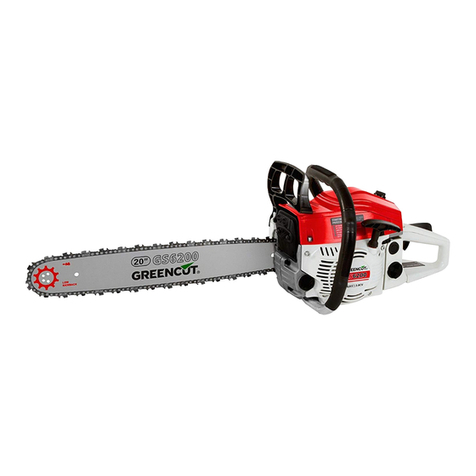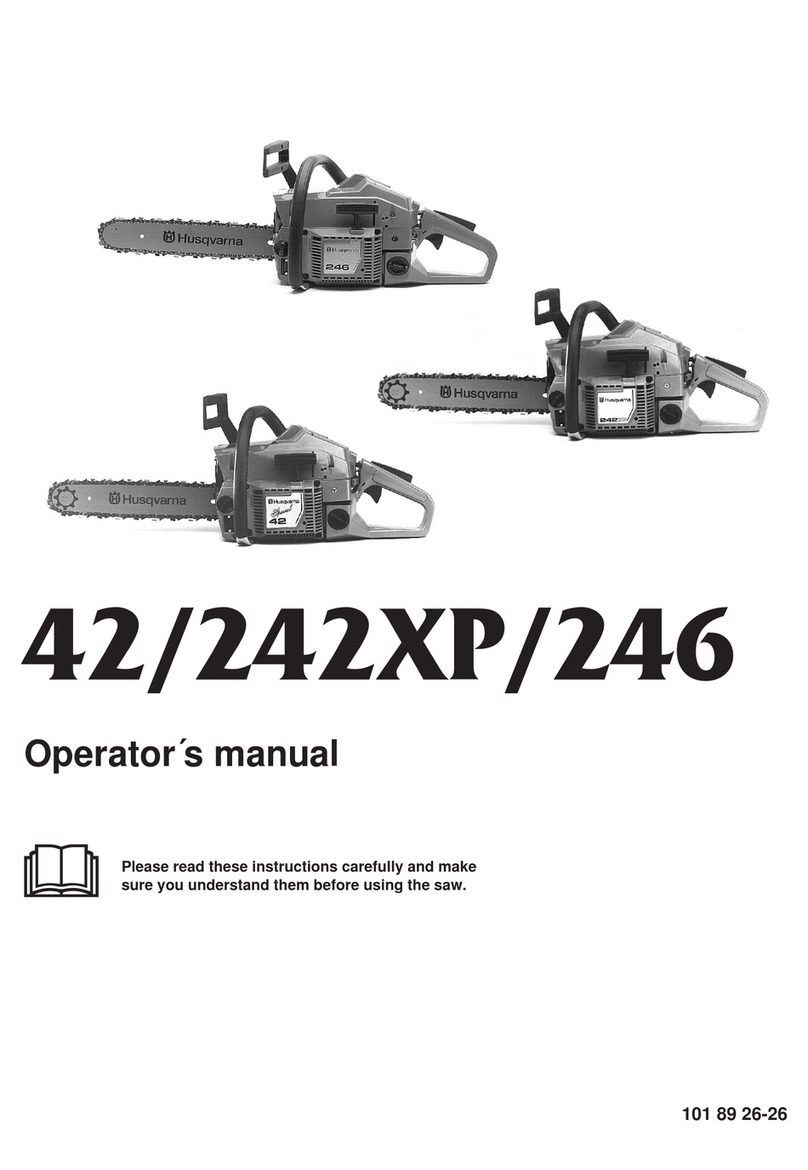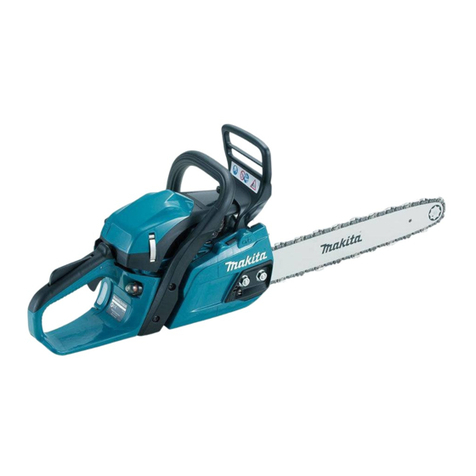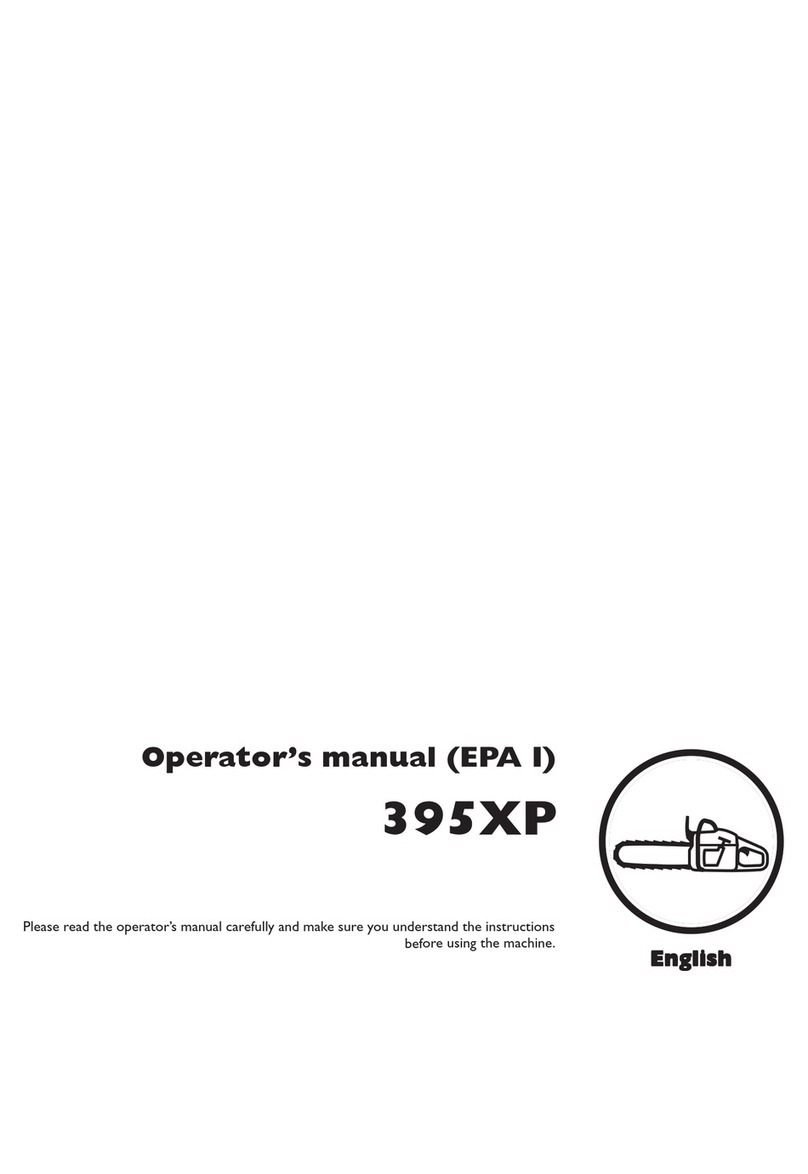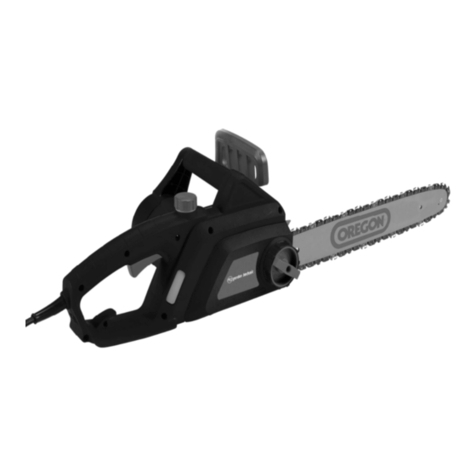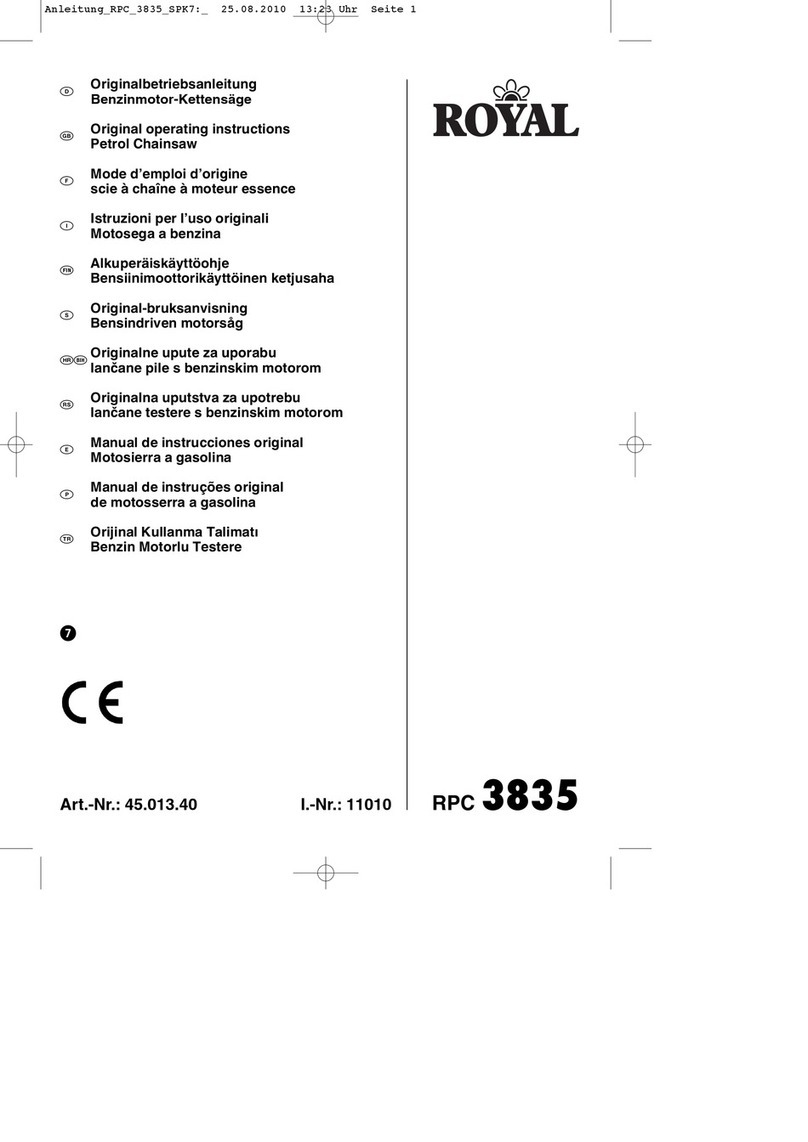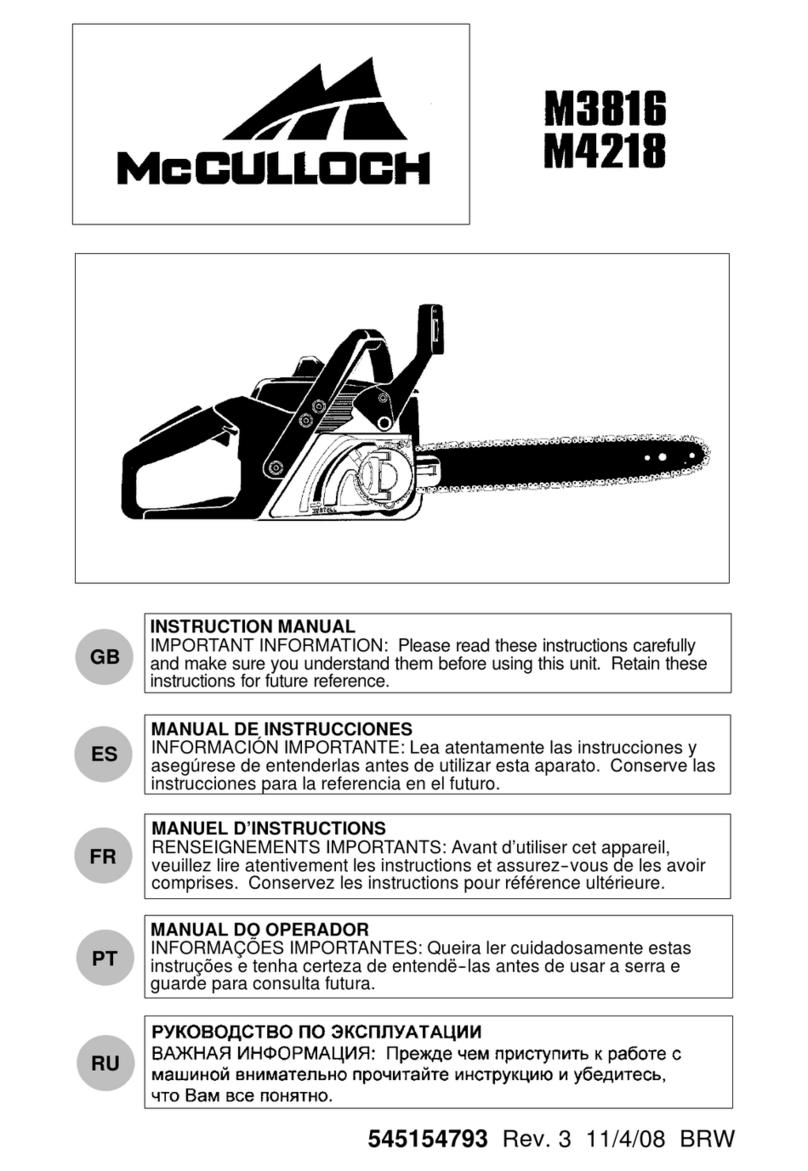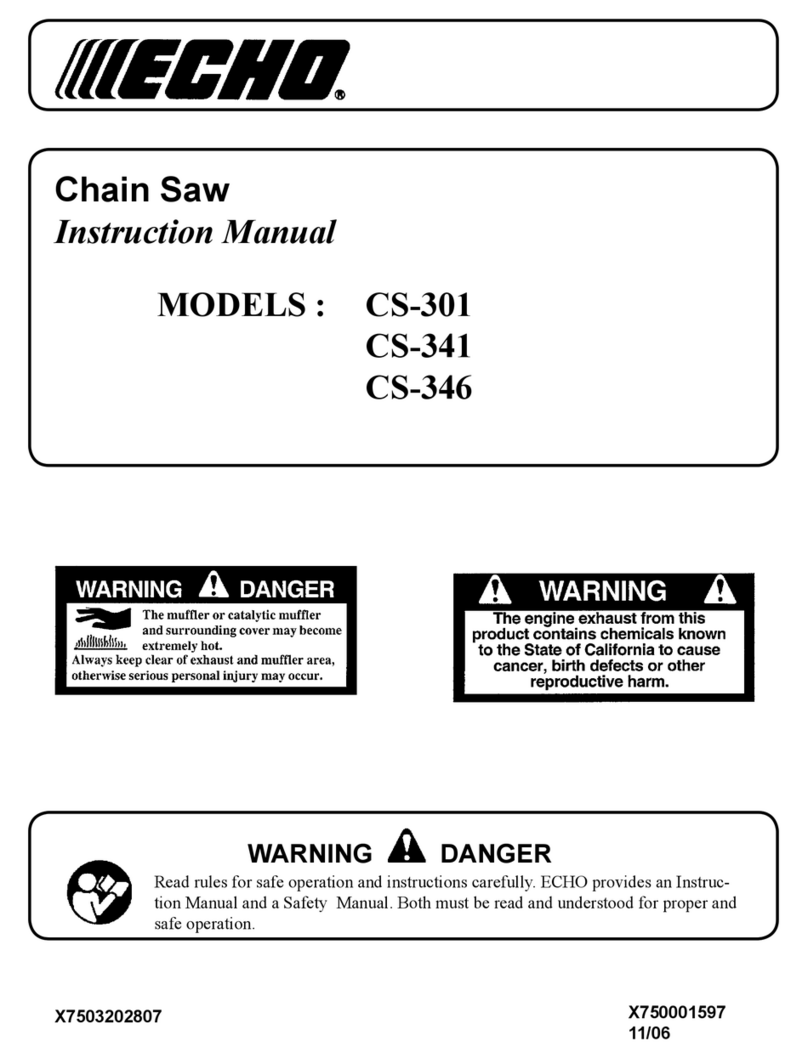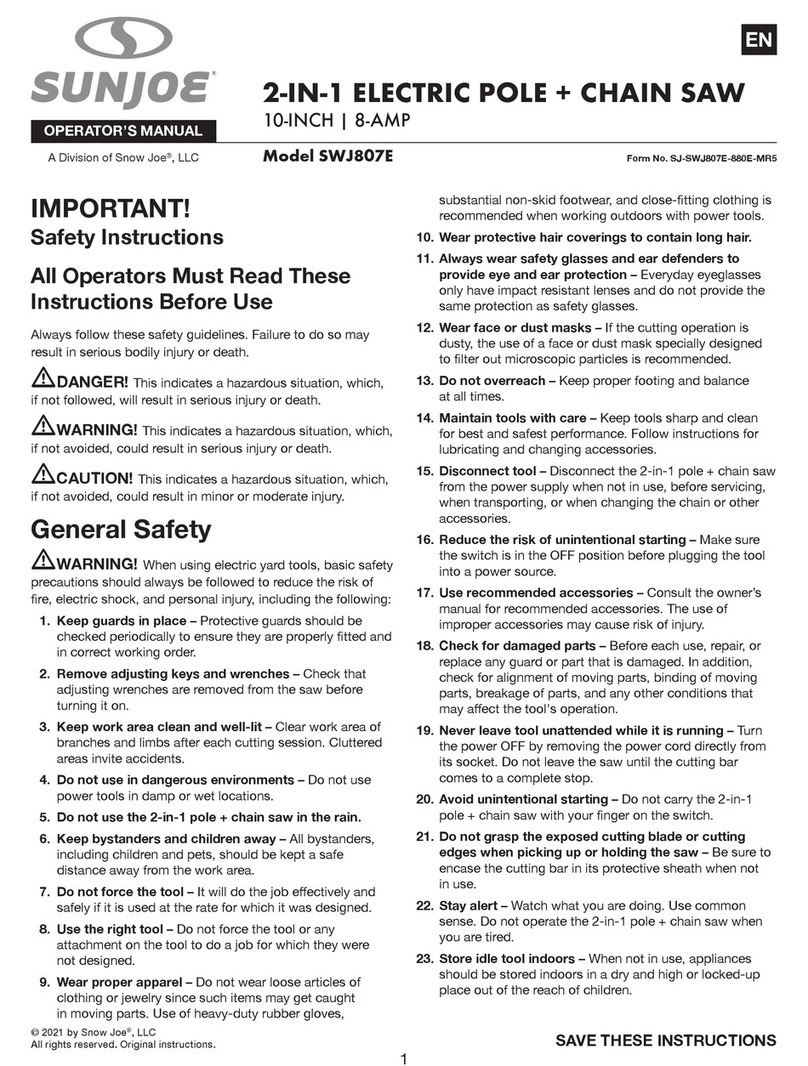
UK - Page 3
WARNING:
The warnings, labels and instructions found in this
section of the operator’s manual are for your safety.
Failure to follow all instructions may result in serious
personalinjury.
Safe operation of this tool requires that you read and
understand this operator’s manual and all labels affixed to
the tool. Safety is a combination of using common sense,
staying alert, and knowing how your saw works.
READ ALL INSTRUCTIONS
KNOW YOUR TOOL. Readtheoperator’smanualcarefully.
Learn the saw’s applications and limitations as well as
the specific potential hazards related to this tool.
CHAINSAWS are designed forcutting wood only.
KICK-BACK MAY OCCUR WHEN THE NOSE OR TIP
OF THE GUIDE BAR touches an object or whenthe
wood closes in and pinches the saw chain in the cut.
Tip contact in some cases may cause a lightning-fast
reverse reaction, kicking the guide bar up and back
towardsthe operator.Pinching the saw chain along the
top of the guide bar may push the guide bar rapidly back
towards the operator.Either of these reactions may
cause you to lose control of the saw, which could result
in serious personal injury.DO NOT rely exclusively upon
the safety devices built into your saw. As a chainsaw
user, you should take several steps to keep cutting jobs
freefromaccidentor injury.
1. With a basic understanding of kick-back, you can
reduceoreliminatetheelementofsurprise.Sudden
surprise contributes to accidents.
2. Keep a good firm grip on the saw with both hands
whentheengine is running. Place yourrighthandon
the rear handle and your left hand on the front handle,
with thumbs and fingers encircling the chainsaw
handles. A firm grip together with a stiff left arm will
help maintain control of the saw if kick-back occurs.
3. Make sure the area in whichyouare cutting is free from
obstructions. DO NOT let the nose of the guide bar
contact a log, branch, fence or any other obstruction
which could be hit while you are operating the saw.
4. Cut at high engine speeds. Always cut with the
engine running at full speed. Fully squeeze the
throttle trigger and maintain a steady cutting speed.
5. Do not overreach or cut above shoulder height.
6. Followthemanufacturer’s sharpening and
maintenance instructions for the saw chain.
7. Only use replacement bars and chains specified by
themanufacturerortheequivalent.
DO NOT OPERATE A CHAINSAW WITH ONE HAND.
Serious injurytotheoperator,helpers and/or bystanders
mayresultfromone-handedoperation.Achainsawis
intendedfor two-handed use.
DO NOT OPERATE A CHAINSAW WHEN YOU ARE
FATIGUED. Neveroperatea chainsawwhen youare tired
or under the influence of medication, drugs or alcohol.
USE SAFETY FOOTWEAR. Wearsnug-fittingclothing,
protectiveglovesandeye,hearingandheadprotection
devices.
DO NOT STAND ON ANY UNSTABLE SURFACE while
using your chainsaw.This includes ladders, scaffolding,
trees etc.
USE CAUTION WHEN HANDLING FUEL. Movethe
chainsaw at least 9 m (30 feet) from the refuelling point
before starting the engine.
DO NOT ALLOW OTHER PERSONS tobenearthe
chainsaw when starting or cutting with the chainsaw.
Keep bystanders and animals out of the work area.
DO NOT START CUTTING until you have a clear work
area, secure footing and a planned retreat path from the
falling tree.
GENERAL SAFETY RULES
